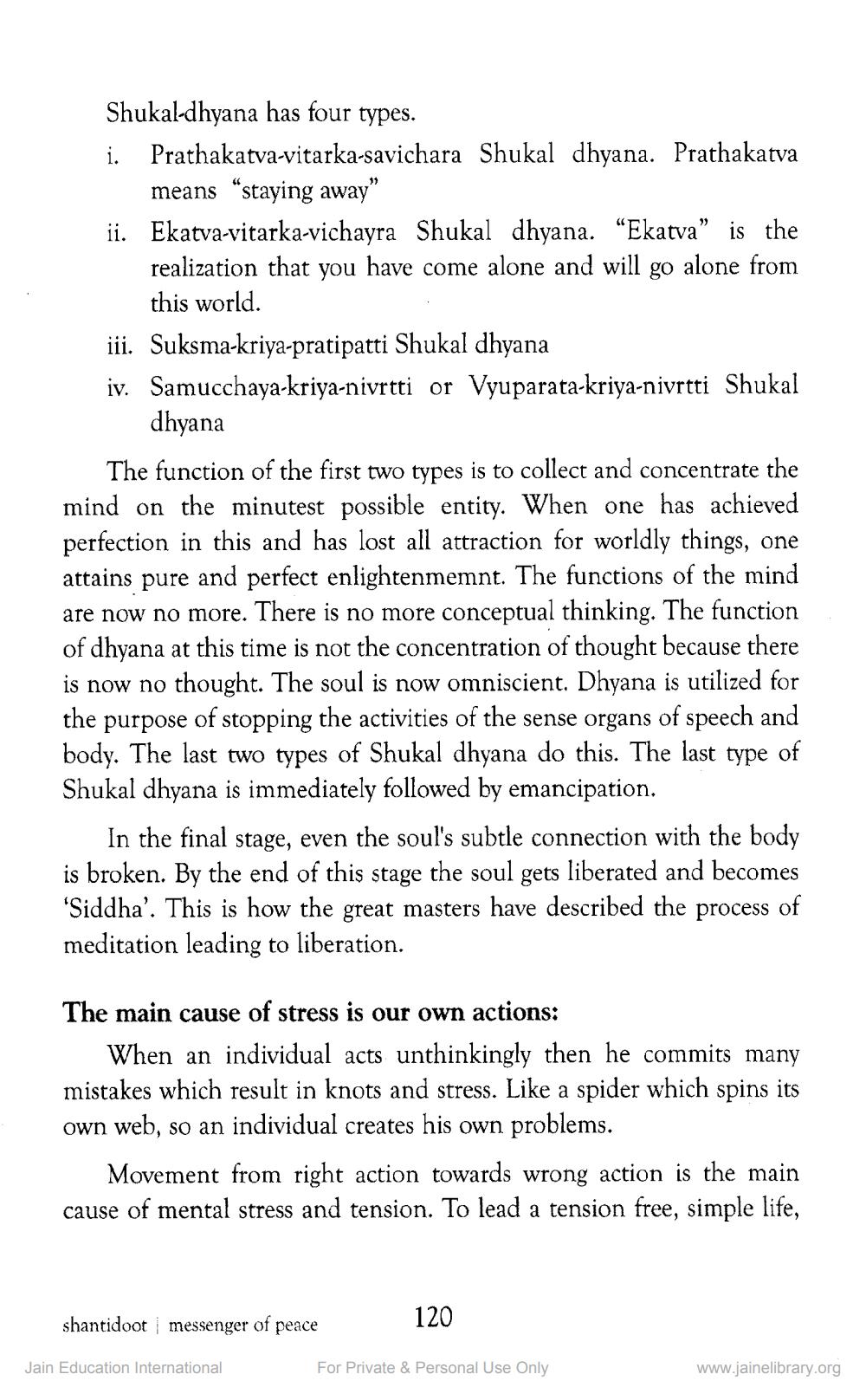________________
Shukal-dhyana has four types. i. Prathakatva-vitarka-savichara Shukal dhyana. Prathakatva
means “staying away" ii. Ekatva-vitarka-vichayra Shukal dhyana. “Ekatva” is the
realization that you have come alone and will go alone from
this world. iii. Suksma-kriya-pratipatti Shukal dhyana iv. Samucchaya-kriya-nivrtti or Vyuparata-kriya-nivrtti Shukal
dhyana The function of the first two types is to collect and concentrate the mind on the minutest possible entity. When one has achieved perfection in this and has lost all attraction for worldly things, one attains pure and perfect enlightenmemnt. The functions of the mind are now no more. There is no more conceptual thinking. The function of dhyana at this time is not the concentration of thought because there is now no thought. The soul is now omniscient. Dhyana is utilized for the purpose of stopping the activities of the sense organs of speech and body. The last two types of Shukal dhyana do this. The last type of Shukal dhyana is immediately followed by emancipation.
In the final stage, even the soul's subtle connection with the body is broken. By the end of this stage the soul gets liberated and becomes 'Siddha'. This is how the great masters have described the process of meditation leading to liberation.
The main cause of stress is our own actions:
When an individual acts unthinkingly then he commits many mistakes which result in knots and stress. Like a spider which spins its own web, so an individual creates his own problems.
Movement from right action towards wrong action is the main cause of mental stress and tension. To lead a tension free, simple life,
shantidoot | messenger of peace
120
Jain Education International
For Private & Personal Use Only
www.jainelibrary.org




